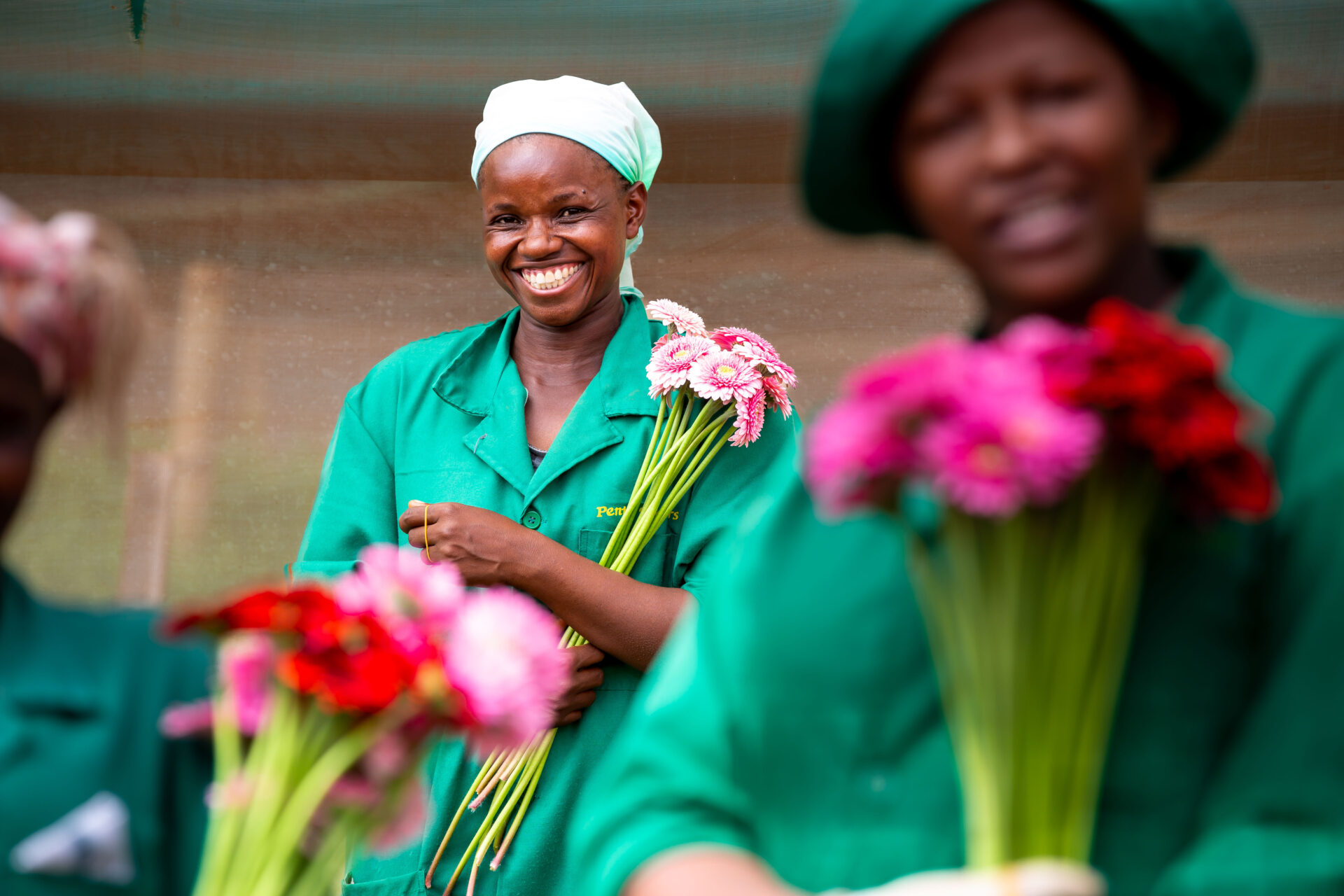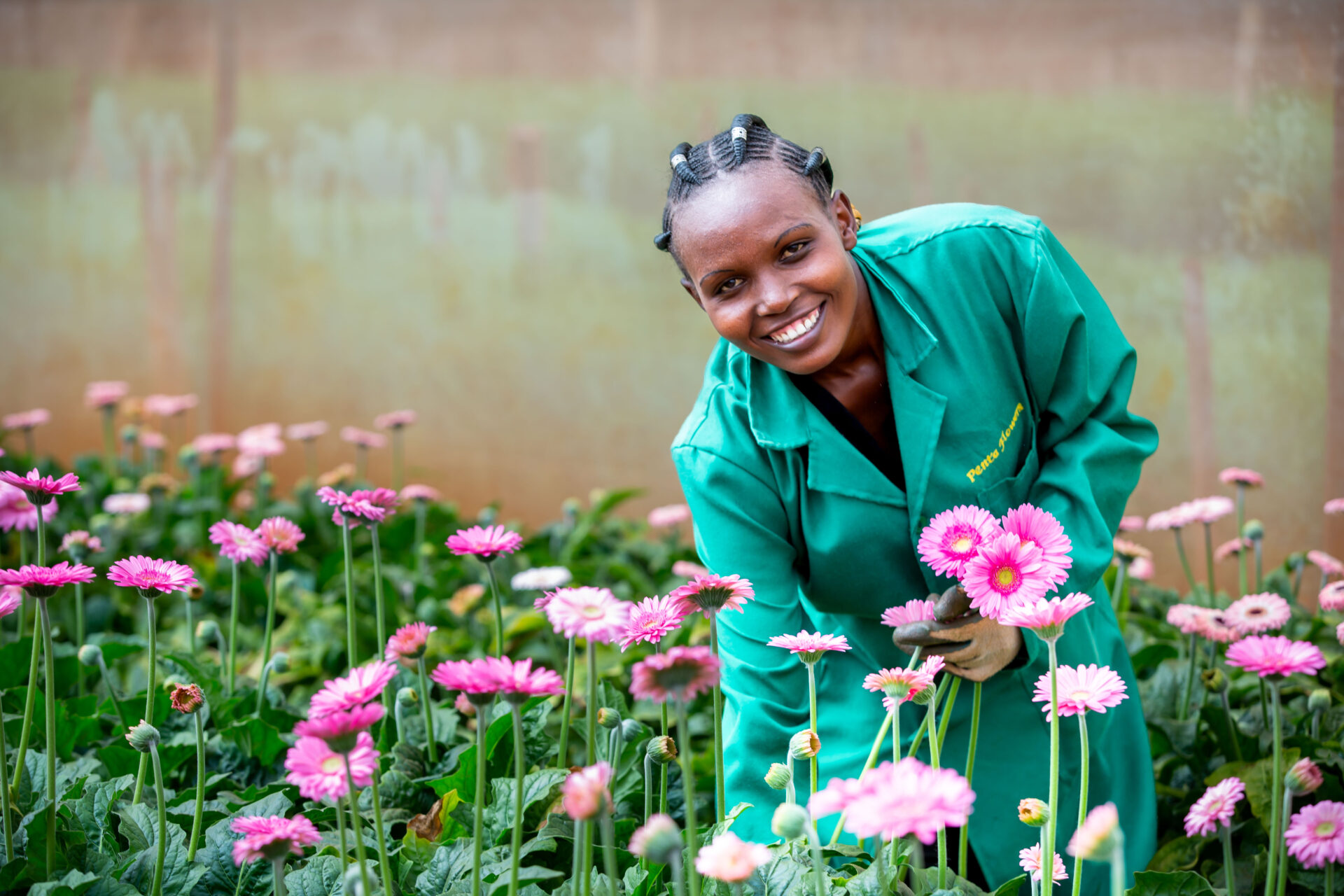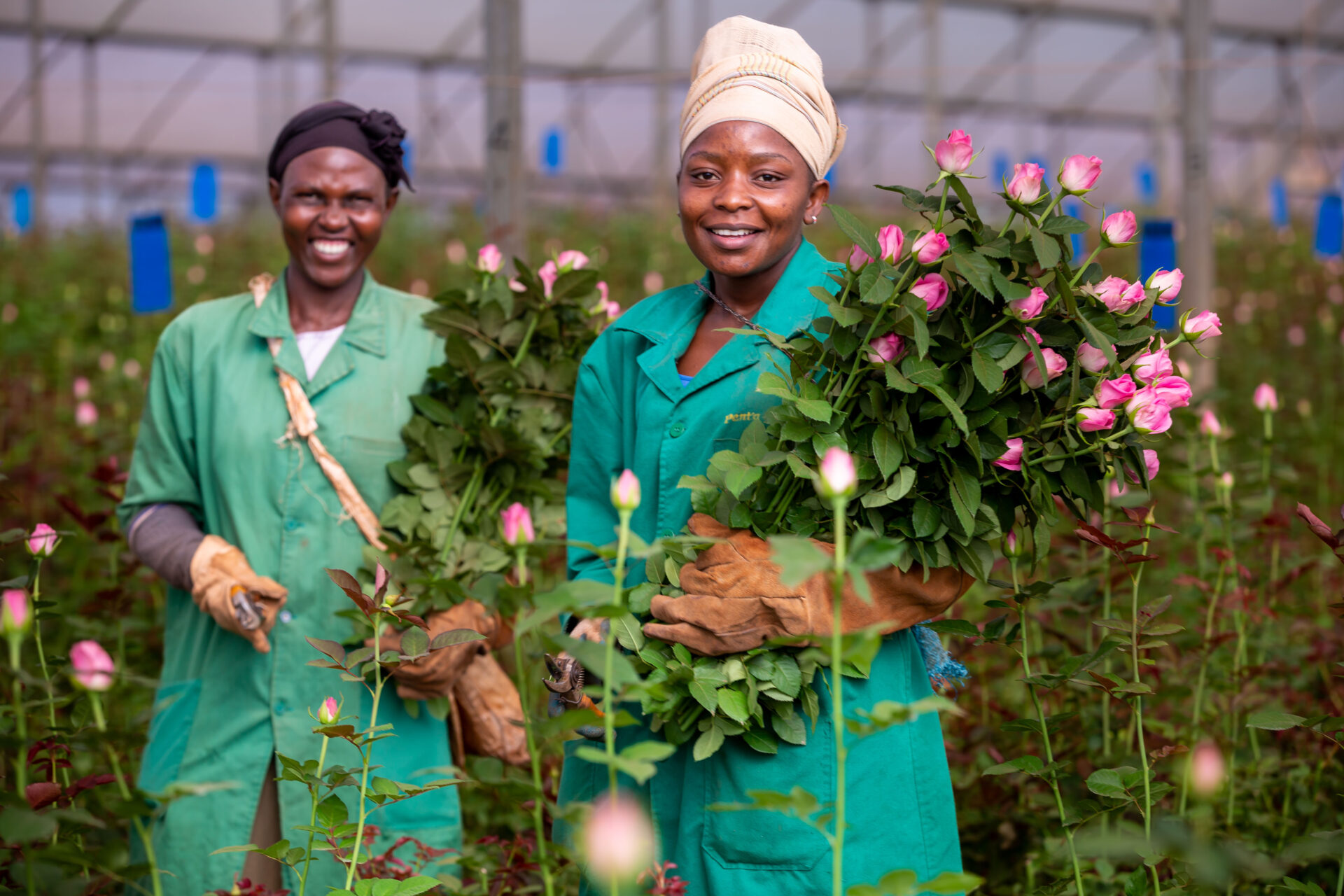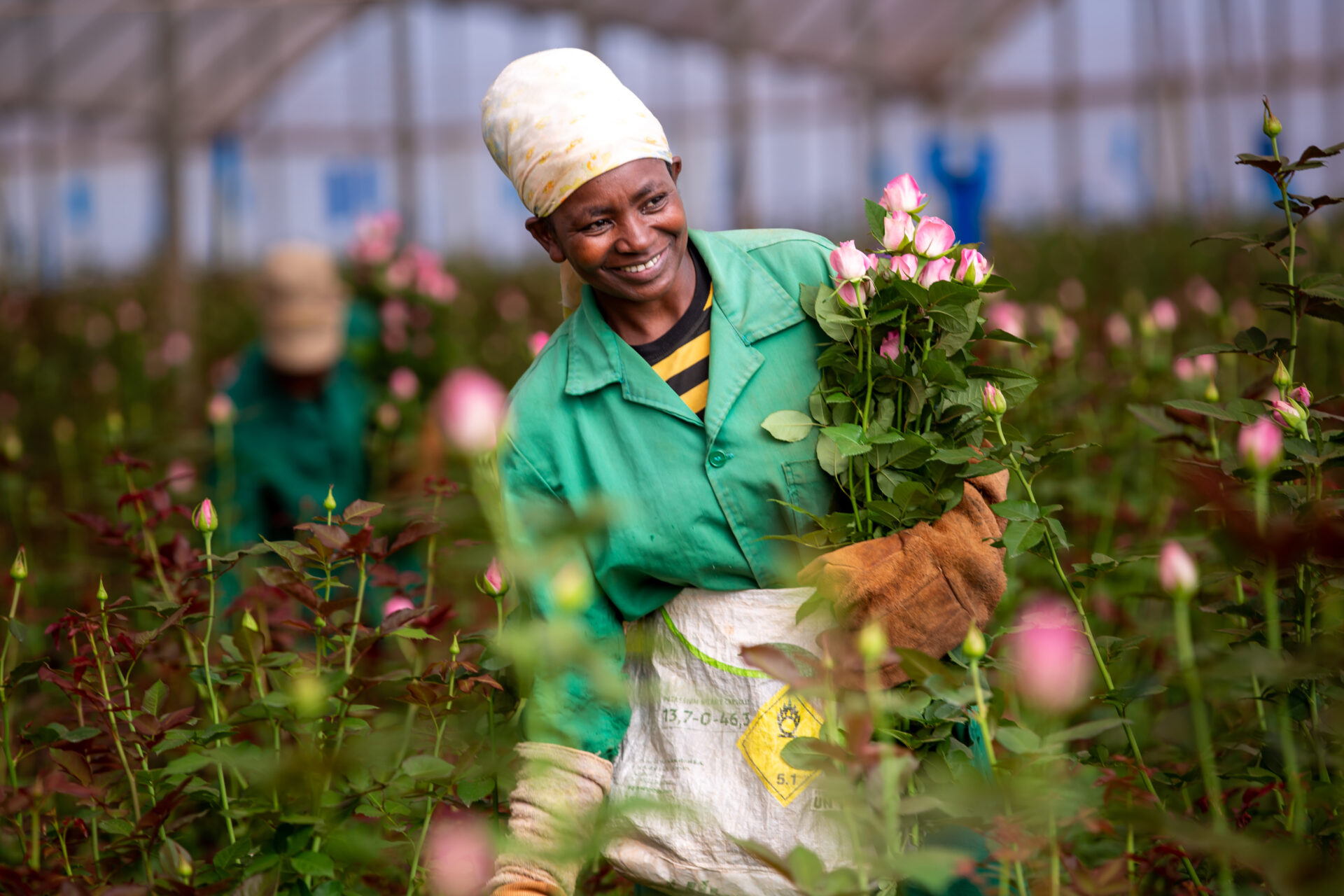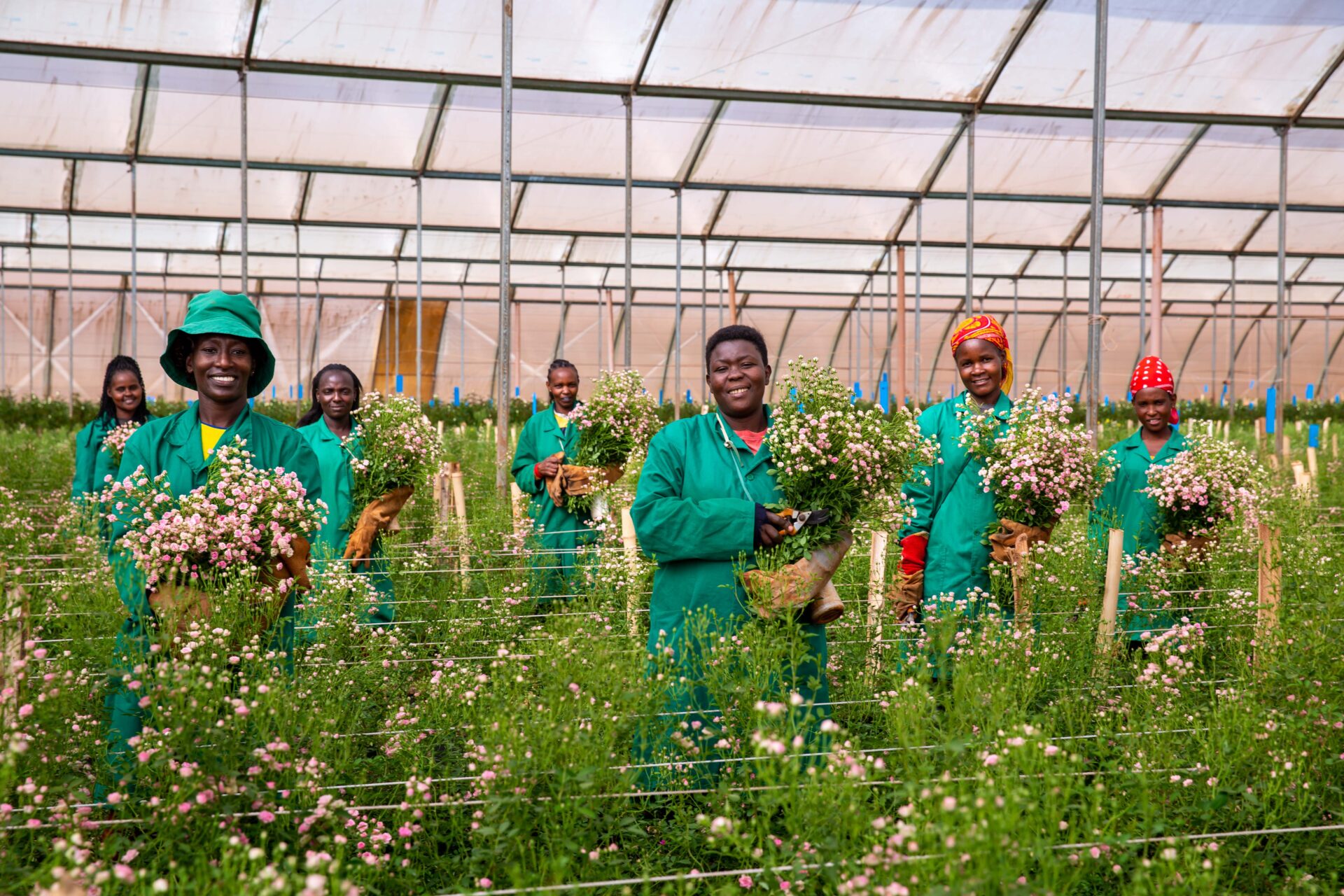The Role of Women in Kenyan Flower Farms: Empowering Communities Through Floriculture
The Kenyan flower industry is a global powerhouse, supplying over 40% of the European Union’s cut flowers and generating billions in revenue annually. Behind this thriving sector is a workforce dominated by women, who make up between 60% and 70% of all employees on flower farms.
Their dedication and skill are essential to the industry’s success, but more importantly, their participation has far-reaching social and economic impacts that extend beyond the farms themselves.
From ensuring quality control and sustainability to supporting their families and communities, women in floriculture are transforming lives. Here, we explore their vital role and the broader benefits of empowering women in the flower industry.
Read MoreWomen: The Backbone of Kenyan Floriculture
Women’s contributions to the floriculture industry span every stage of the supply chain, from planting and tending to flowers to post-harvest handling and quality control. Their precision and attention to detail are crucial in maintaining the high standards expected in international markets.
Quality and Post-Harvest Handling
Ensuring flowers meet international export standards requires skill and consistency. Women are primarily responsible for sorting, grading, and packing flowers—a crucial stage that determines vase life and overall product quality. Studies indicate that proper handling can extend vase life by up to 30%, reducing waste and ensuring wholesalers receive only the freshest flowers.
Economic Empowerment: The Ripple Effect
Employment in the floriculture sector provides financial independence for thousands of women, helping them support their families and invest in their communities. The stable income they earn allows them to:
- Provide education for their children: Studies show that women reinvest up to 90% of their income back into their families—compared to 30-40% for men—ensuring better education and opportunities for future generations.
- Access healthcare and better living conditions: Many flower farms offer healthcare benefits, maternity leave, and childcare support, improving overall quality of life.
- Gain financial independence: Having their own income gives women more control over household decisions, increasing their autonomy and self-reliance.
Social Impact: More Than Just Jobs
Women’s participation in floriculture doesn’t just benefit individuals—it strengthens entire communities. Many farms, including those partnered with The Flower Hub, invest in social programmes focused on:
- Women’s leadership and skills training: Enabling career growth within the industry.
- Support for gender equality and fair wages: Ensuring better working conditions.
- Community development projects: Funding schools, healthcare initiatives, and infrastructure improvements.
The Flower Hub: Supporting Women in Floriculture
At The Flower Hub, we take pride in working with farms that actively empower their female workforce. Our partner farms provide fair wages, safe working conditions, and growth opportunities, ensuring that the women behind Kenya’s thriving flower industry are recognised and rewarded.
By partnering with The Flower Hub, wholesalers are not just sourcing high-quality, sustainably grown flowers; they are also supporting a supply chain that uplifts communities and creates lasting economic and social benefits.
The success of Kenyan floriculture is built on the dedication of women. Their role in maintaining quality and strengthening communities is invaluable. For wholesalers, working with suppliers who champion gender equality and fair labour practices isn’t just an ethical decision, it’s a business advantage.
By choosing The Flower Hub, you’re ensuring that every flower you sell supports a story of empowerment, sustainability, and positive impact.
For more insights into our ethical sourcing and supply chain solutions, visit www.theflowerhub.net.
Sources:
- Fairtrade Foundation – Women’s Role in Floriculture: https://www.fairtrade.org.uk/
- International Labour Organization – Women in Agriculture: https://www.ilo.org/publications/flagship-reports/world-employment-and-social-outlook-trends-2024
- International Association of Horticultural Producers – Flower Industry Trends: https://aiph.org/floraculture/news/global-trends-in-the-cut-flower-trade/

